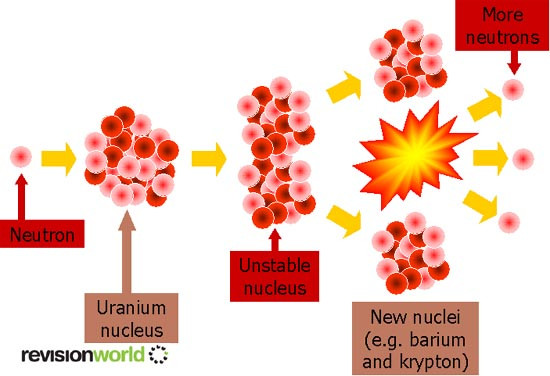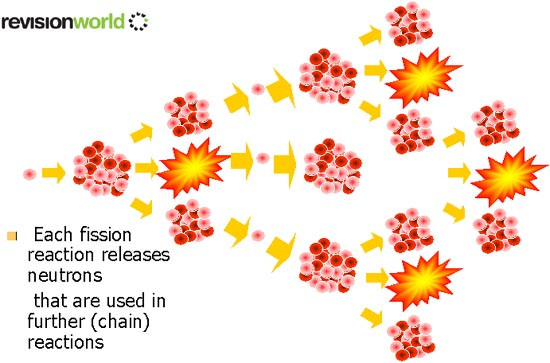Nuclear Radiation
Nuclear Fission
- Nuclear fission occurs when the mass number of an element splits.
- The product is a new element and released neutrons
- Nuclear fission releases heat energy
- This heat is harnessed in nuclear power stations to boil water, which is used to drive turbines and machinery
- The amount of energy produced by each reaction is very small billions of reactions occur every second
- The waste products from these reactions are radioactive, which is why many people worry about nuclear power plants

An introduction to nuclear fission
This video shows an introduction to the concept of nuclear fission. The inside of a nuclear power station is shown and the make-up of the nuclear reactor is described. It is explained how nuclear fission creates heat to generate electricity. Computer graphics of the nuclear reaction are shown. There is a discussion of the issues surrounding nuclear energy including cancer, the potential for a Chernobyl-type disaster and the production of nuclear waste that cannot yet be safely disposed of.
Nuclear Energy
This video explains all about Nuclear Energy
Chain Reactions
When additional neutrons released hit other nuclei they cause them to split. Even more neutrons are then released, which in turn can split more nuclei. This is called a chain reaction. The chain reaction in nuclear reactors is controlled to stop it going too fast.

